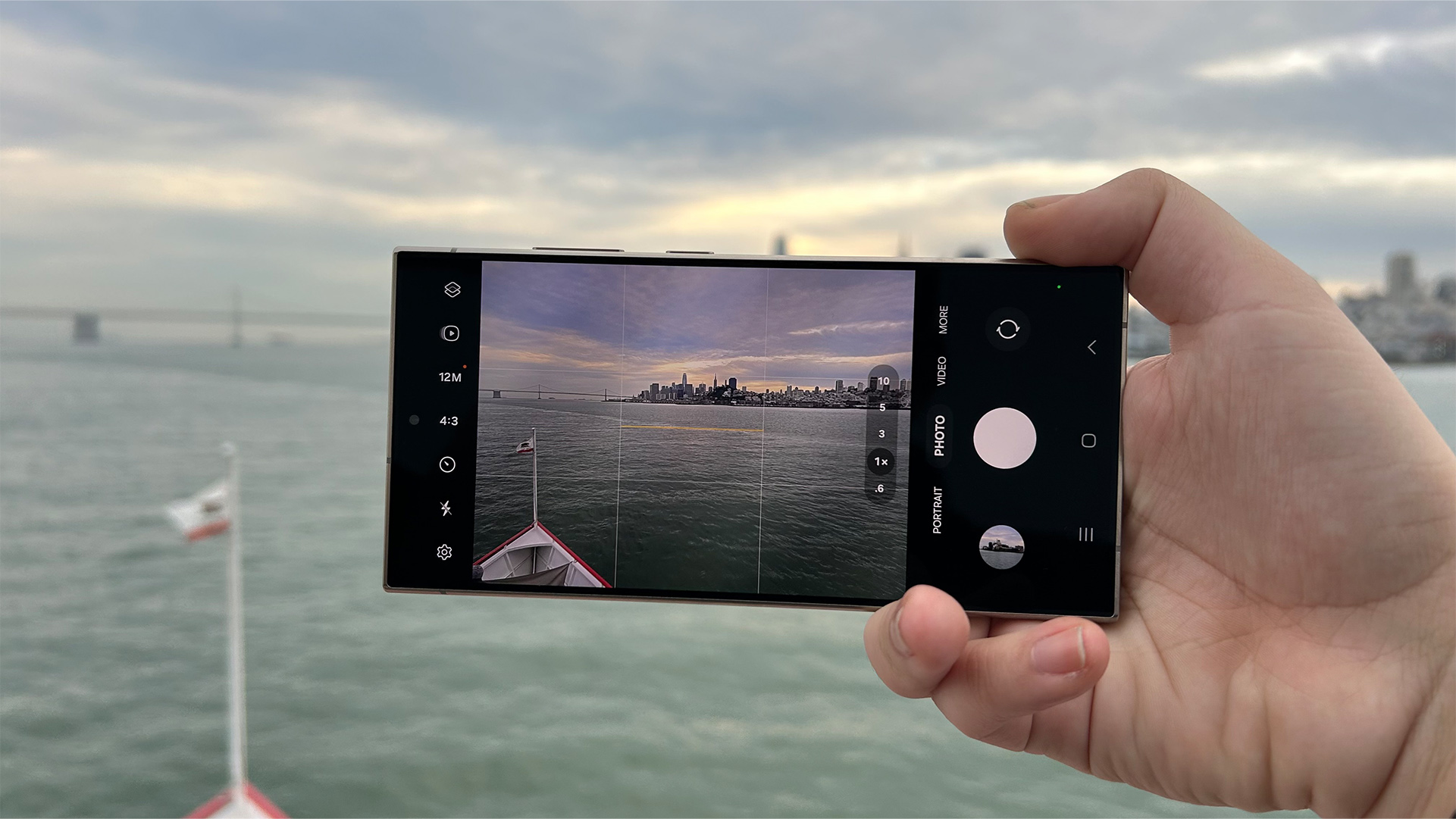
Screen size: 6.2in
Screen type: Dynamic AMOLED
Resolution: 1080 x 2340 pixels (415 ppi)
Storage: 128GB / 256GB
The Galaxy S24 is the first phone with genuinely useful AI features, its screen has a dynamic refresh rate from 1Hz to 120Hz, and its cameras are still among the best-specced of any smartphone. But it misses out on the Ultra's better camera, Qualcomm processor and higher-resolution screen.
For
- Dynamic refresh rate screen
- Useful AI features
- Cheaper at launch than last year's model
Against
- Only FHD screen
- No Qualcomm processor
Screen size: 6.8-inch
Screen type: Dynamic AMOLED
Resolution: 1440 x 3120 pixels (505 ppi)
Storage: 256GB / 512GB / 1TB
The Ultra certainly lives up to its name, with a big, bright, bold screen, oodles of power, an awesome camera and more storage options than the standard S24. It is quite a bit pricier than the S24 (and rival flagships) though, and isn't the market class leader when it comes to picture and sound subtlety.
For
- Bright and punchy screen
- Genuinely useful AI features
- Solid and high-quality build
Against
- Pricier than the iPhone 15 Pro Max
- Lacks subtlety in picture and sound
- Might not suit people with small hands
The Samsung Galaxy S24 brings the fight to the iPhone 15, boasting a big, bright screen, AI skills galore and a new processor to keep things running as responsively as users demand in this day and age. Three models are available: the S24, S24 Plus (simply a larger version) and the flagship S24 Ultra.
So if you're wondering which model to buy and what you'll be sacrificing or gaining by choosing one over the other, you've come to the right place. Below we compare the prices, design, features and audio and video specs of the Galaxy S24 and S24 Ultra, the latter of which our expert reviews team has gone 12 rounds with, resulting in a four-star S24 Ultra review.
(Contemplating the S24 Plus? Just note the S24's specs but remember it's a physically bigger handset.)
- iPhone 16: all the rumours about what to expect from the 2024 iPhone
- Check out the best smartphones for movies and music
Samsung Galaxy S24 vs S24 Ultra: price
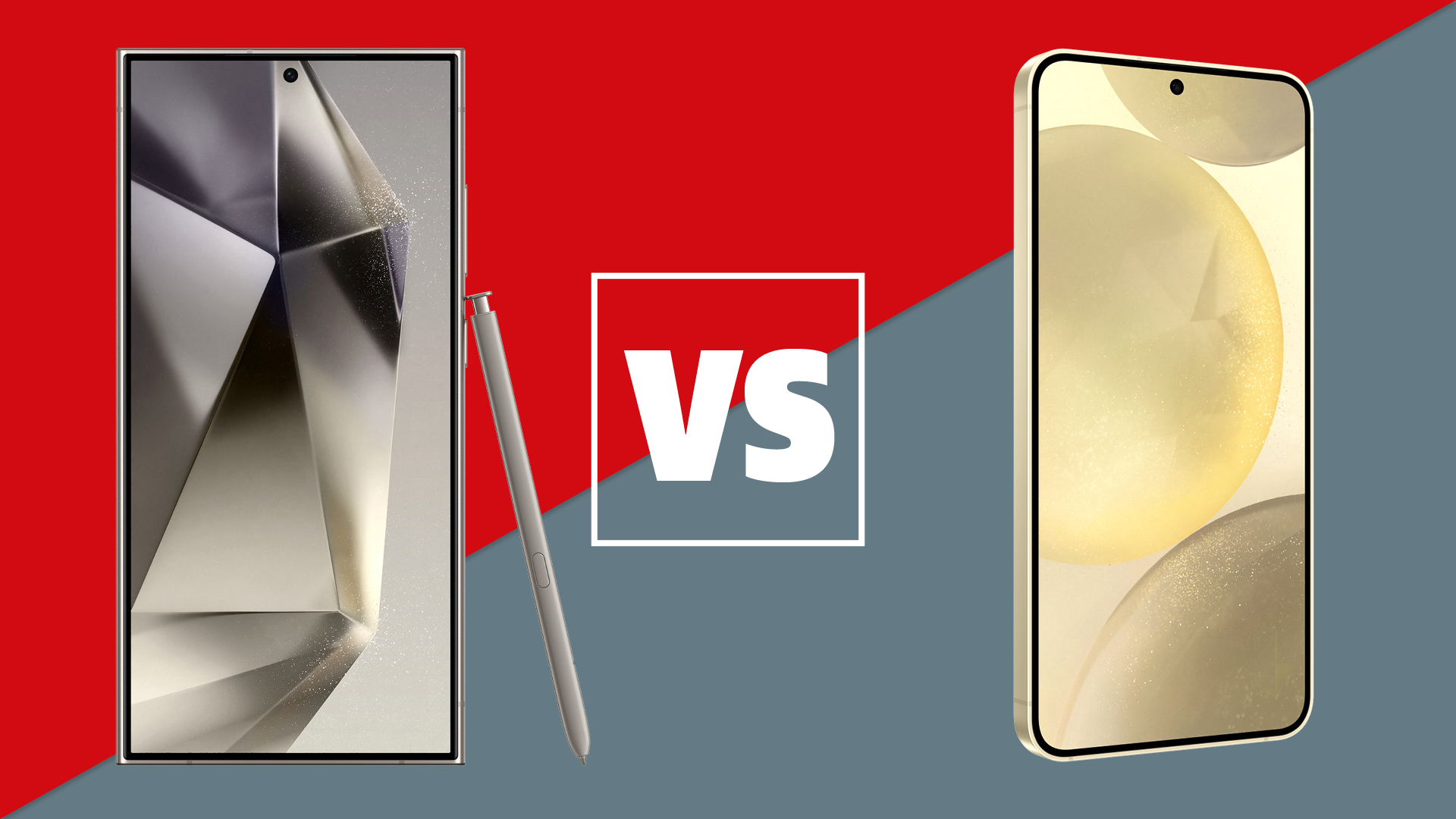
You can see the prices of all models and configurations of Galaxy S24 and S24 Ultra below.
The only crossover storage capacity between the two phones is 256GB, where the S24 Ultra is almost £400 / $400 / AU$800 more expensive. In Australia, the S24 also comes with a 512GB capacity, where it's AU$800 cheaper than the S24 Ultra).
So what do you get for your money?
Samsung Galaxy S24 vs S24 Ultra: design
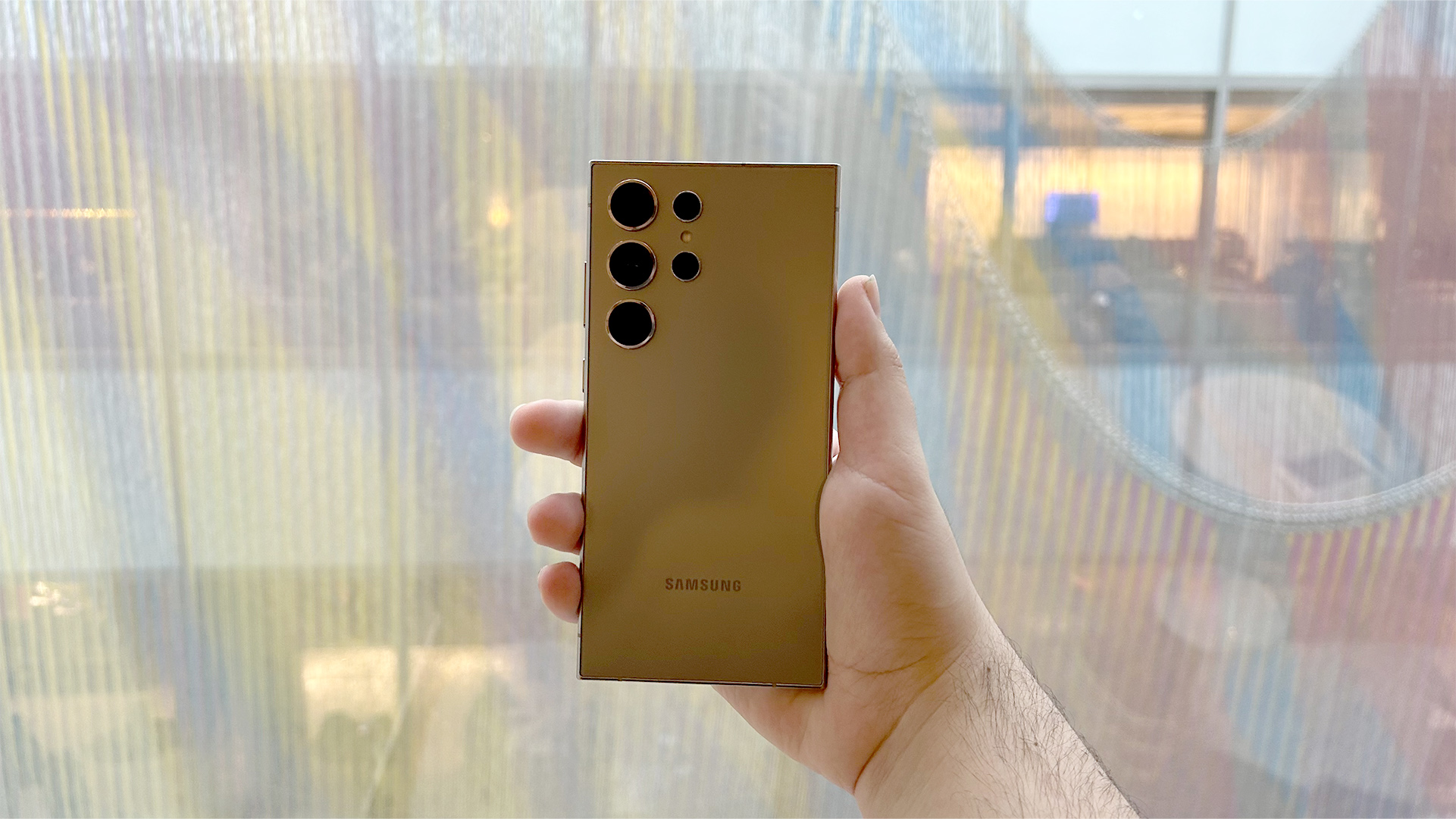
What's immediately obvious when you put the two handsets next to one another is how different they look, which isn't all that common for phones in the same range.
In line with previous iterations of the Galaxy phone, the S24 Ultra has squared corners whereas the S24's are rounded. But this year, the Ultra's 6.8-inch screen is flat rather than curved, meaning less screen glare, less distortion towards the 'gutters' at the edges of the screen, and fewer accidental taps.
This is the first Ultra model to be built with titanium (much like the iPhone 15 Pro models). And Samsung wants you to know about it – the phone comes in seven colours called Titanium Black, Titanium Grey, Titanium Violet, Titanium Yellow, Titanium Blue, Titanium Green and Titanium Orange (the last three of which are Samsung.com exclusives). Why titanium? It's said to increase grip to prevent drops, and increase durability so that if you do drop it it's less likely to break.
In place of titanium, the 'standard' S24 uses an Aluminium Armour frame and One Mass design, with a smooth gapless design between the frame and glass panels. It too has seven colour options: Onyx Black, Marble Grey, Amber Yellow, Cobalt Violet, Sapphire Blue, Jade Green and Sandstone Orange (the last three of which are only sold by Samsung).
Gone is the glossy frame of the S23, in favour of a more understated matte finish with a satin rear panel.
Samsung Galaxy S24 vs S24 Ultra: features
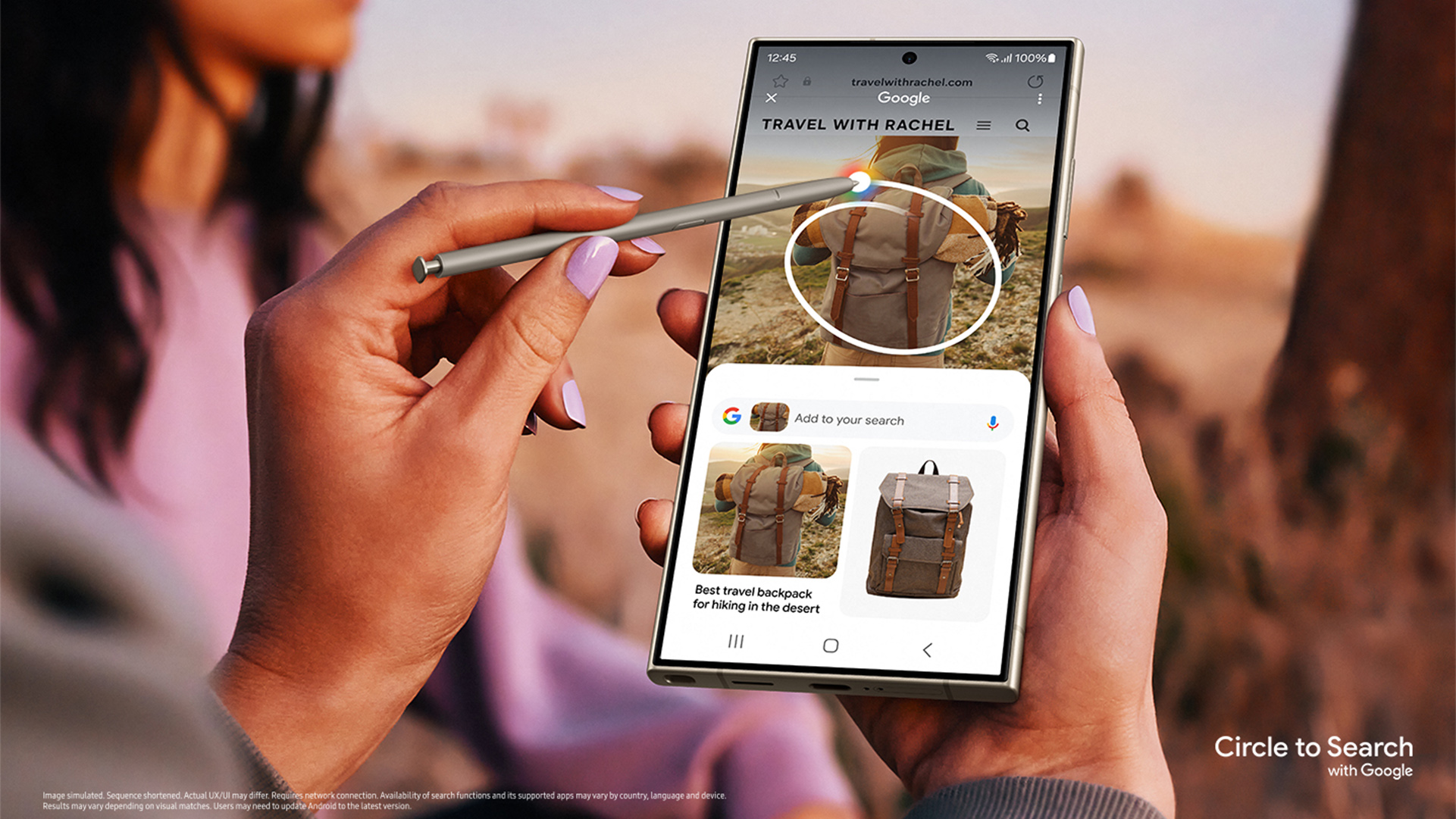
Samsung's Galaxy S range is its flagship family of smartphones, so it's not short of features. This year's headline feature is AI, which enables some neat skills like 'Circle to Search with Google' (Google something just by drawing a ring around it) and AI photo editing, which auto-fills in missing background once you edit out an element. There are more AI tools to play with, even if many of them are a bit gimmicky. Still, these two very useful AI features work very well indeed and will undoubtedly be part of your everyday phone use.
They're available on both the Galaxy S24 and S24 Ultra and will come to other Samsung phones as well, including the S23 Ultra and Z Fold 5.
The S24 Ultra has a special 'For Galaxy' version of Qualcomm's latest Snapdragon 8 Gen 3 processor, while the standard S24 makes do with Samsung's own Exynos processor.
In terms of their displays, both phones have the same dynamic refresh rate (1Hz to 120Hz) which allows them to react on the fly depending on what's happening on-screen – if the action gets frantic, they can scale up the refresh rate to minimise blur; if it's static, it can drop right down to preserve battery life. Both have Dynamic AMOLED displays, though the S24's is only Full HD whereas the Ultra's is Quad HD. Brightness for both is 2600 nits, making for clear viewing in bright sunlight.
Unsurprisingly, the S24 Ultra has more storage options and power too – up to 1TB of storage compared to the S24's maximum of 256GB, and 12GB of RAM instead of the S24's 8GB. Its 5000mAh battery dwarfs the S24's 4000mAh, promising up to 30 hours of video playback (versus 29 hours for the S24) and up to 95 hours of audio playback (versus 78 hours for the S24). Both have wireless charging.
Another major point of difference is the S Pen stylus, which comes with the S24 Ultra but isn't compatible with the standard S24. The stylus lets you write and draw on the screen and tucks into the frame of the phone with a satisfying click.
Samsung's cameras are some of the best found on any phone. The Ultra has an extra telephoto camera over the S24's arrangement, and it packs an impressive 50 megapixels. Its other telephoto matches the S24's single 10-megapixel one. Both phones have the same 12-megapixel front camera, while the Ultra's wide-angle has 200 megapixels compared to the S24's 50 megapixels. They both have the same ultra-wide camera for group shots or landscapes.
Samsung Galaxy S24 vs S24 Ultra: picture
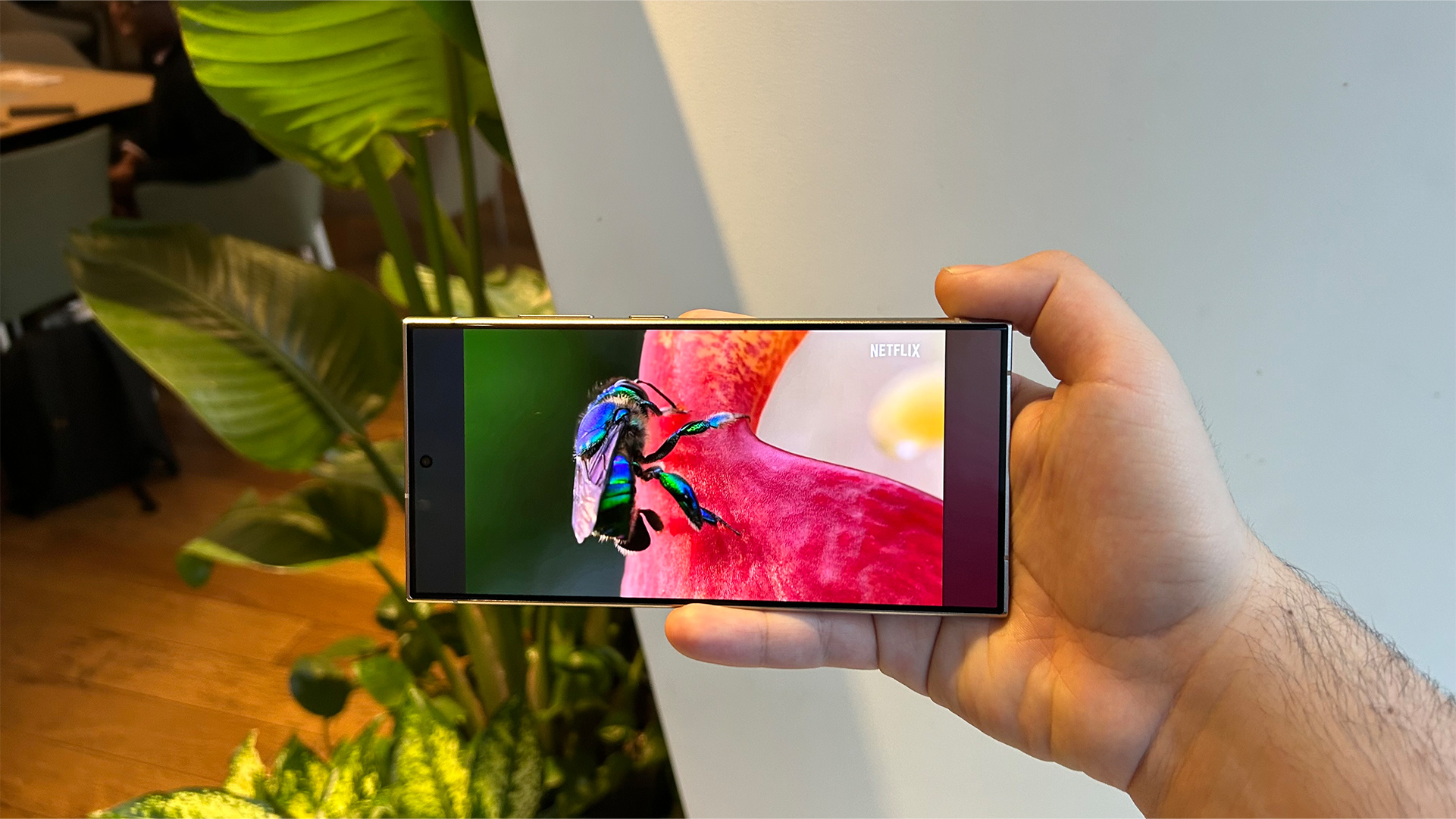
In testing, we found the S24 Ultra's screen performs much like those on Samsung's recent TVs. In one respect, that's very good, as it goes extremely bright, produces a sharp picture and has plenty of pop. But in another respect, it's not so good, as Samsung doesn't lead the field when it comes to subtlety.
Generally, there's plenty to like. The S24 Ultra picture feels textured and cinematic, especially on the large 6.8-inch screen. There's plenty of dark detail and the edges are well defined, adding depth. But it's outdone by rivals in terms of three-dimensionality, and motion due to the occasional glitch during panning shots. Skin tones can also feel a little overcooked.
We haven't gone 12 rounds with the standard S24 so can't as confidently comment on its picture quality. The smaller screen (6.2 inches) and lower resolution (Full HD) will obviously be felt, and make the picture less cinematic and engaging. But we applaud the fact it has the same dynamic refresh rate and peak brightness, which should make it a lot more impressive visually than plenty of similarly sized handsets.
Samsung Galaxy S24 vs S24 Ultra: sound
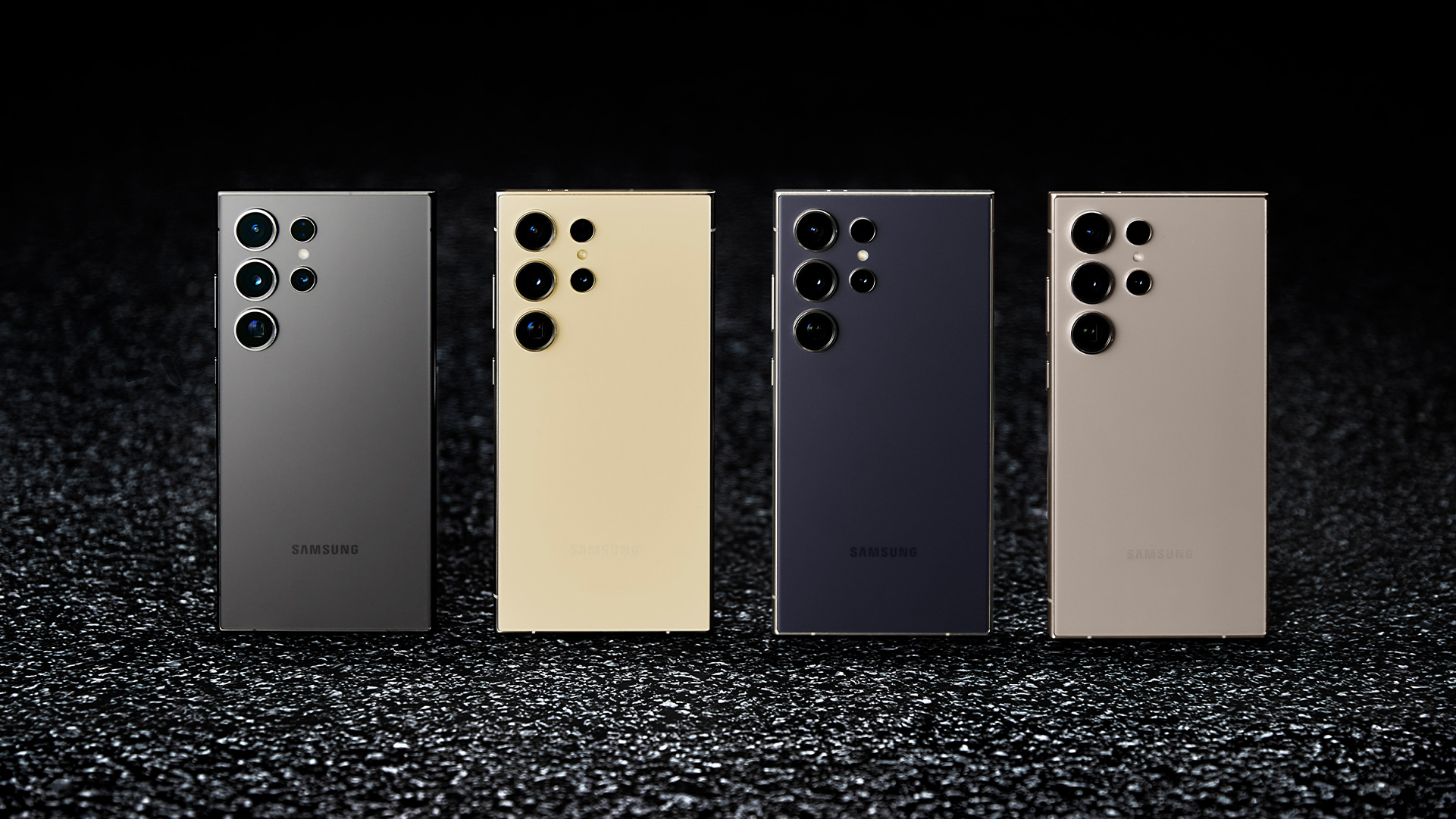
The S24 and S24 Ultra's audio setup are nigh-on identical. You get stereo sound courtesy of the earpiece and bottom-firing speaker. If you want to use headphones, there's no 3.5mm jack so you'll need either a USB-C-to-3.5mm adapter or a pair of USB-C-ended headphones, or go wireless. If you do go wireless, you get Bluetooth 5.3 support with Bluetooth Low Energy (LE). The phones also support Dolby Atmos audio.
In our testing, we found the S24 Ultra has an energetic sound, but much like its picture performance it does lacks a little subtlety. There's warmth albeit not enough texture for our liking, and an overall lack of richness costs it. But it's a spacious soundstage with decent clarity that will serve most people just fine.
The S24 Ultra's speakers are surprisingly effective. There's a decent sense of separation – helped by the large size of the phone – which is aided by the addition of Dolby Atmos. Though we wouldn't recommend listening to music for long through a phone's speakers, if you have to, you won't be too badly served by the S24 Ultra.
We haven't tested the standard S24, but we would imagine its speaker performance would be slightly less sonically impactful given its smaller size.
Samsung Galaxy S24 vs S24 Ultra: early verdict
We don't do favouritism here at What Hi-Fi?; the S24 Ultra had to earn its four stars like any other device we review. It did so thanks to its compelling combination of great build quality, genuinely useful AI features and a compelling screen. So why didn't it score five stars? Because Sony's high-end smartphones (especially the Xperia 1 V) are better for movies and music on the move, offering greater subtlety.
Again, we haven't tested the standard S24, but it offers a lot of what makes the Ultra so good in a smaller size and at a significantly lower price, especially in terms of software and AI features. True, it misses out on the super-speedy processor, higher-res QHD screen and extra photographic abilities, but to many those compromises will be worth the saving.
MORE:
Samsung Galaxy S23 vs iPhone 14: which older smartphone is better?
Samsung Galaxy S23 Ultra vs iPhone 14 Pro Max: which old flagship is for you?
Also consider the Apple iPhone 15 Pro Max and Sony Xperia 1 V





